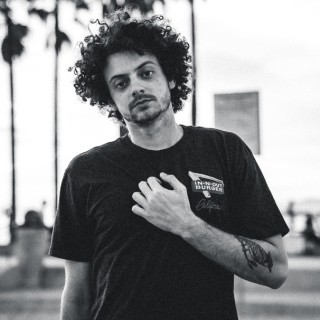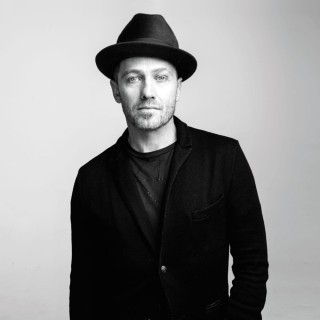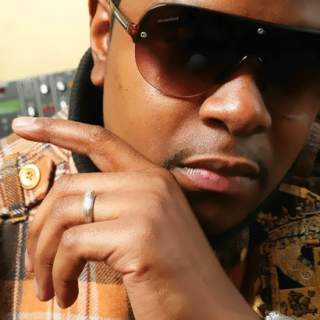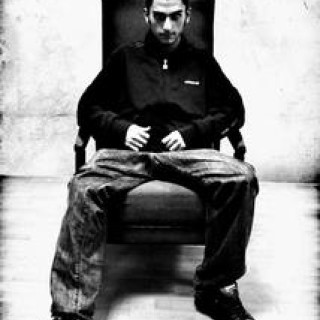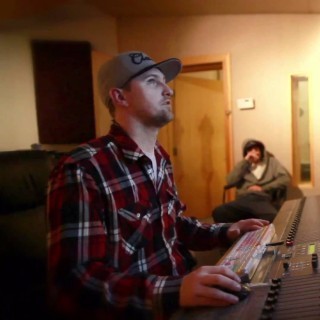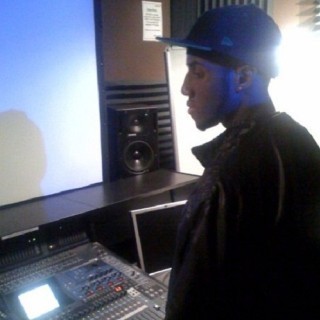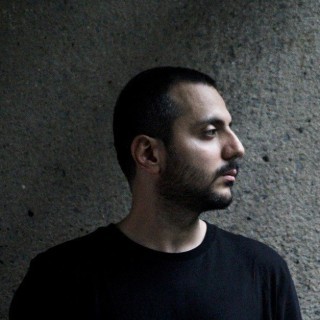
2.1 - The iPod Experiment: Or, Learning vs Education
Cathy Davidson
Lectures: "The History and Future of (Mostly) Higher Education"
03.02.2014
161
Rap
Tekst piosenki
Oh, hi, you're back. Well, welcome to Week 2. I'm not just listening to this iPod. This is our lesson for the week. This, by the way, see this clunky thing about the size of a cigarette pack, is the original iPod, invented in 2002-2003. Some people called it a music-listening device. Here, at Duke, we called it a learning revolution. And that's going to be the subject of our conversation today.
We did an experiment called the iPod experiment in 2003. Apple came to us and asked if we would like to take one Apple product and give it to our students to experiment with and to use in the classrooms. We quirkily decided to use the iPod, because they had no known learning application at all. And we thought we would, instead, ask our students to figure out how to learn with it. And, in fact, we set it up in an interesting way. We gave free iPods to all the Duke entering students, the first-year students. And the second, and third, and fourth year students students, of course, were furious and said "Hey, we paid tuition, what about us?" So we said, "Okay, if you can invent a learning application and convince a professor to put an iPod-- or the use of the iPod on a syllabus, we'll give you, your professor, and everybody in the class a free iPod. The amazing thing is in one semester, we gave away more free iPods to students and their profs who had come up with learning applications, than we did to the entering freshmen. So, did everyone hail us and say, "Look at this, this was not throwing technology at students, but having students actually taking a technology and turning it into a useful, interesting learning device?" Not at all. I think the cover of Newsweek magazine-- I think that one said "iPod, Therefore I Am"-- and it was a pretty scathing article about us giving iPods to students. Peter Jennings, on ABC TV, had a story called, "Shakespeare on the iPod", "Calculus on the iPod". Those were not rhetorical questions. He meant the answer is no, no, that's terrible. Inside higher ed, flattenly, just called it all a big publicity stunt.
Why that's important is we're going to be talking in Week 2 about the distinction between learning and education. What we'll find is, learning is very important to people. People always talk about learning for the future and learning the future together, but often when they talk about education, they're extremely conservative about wanting to change the institutions of education.
Let me recap a little about what we talked about in Week 1, to be able to unite it to what we're going to be talking about this week. First, we talked about history; this is the class on the history and future of mostly higher education, but it's not a typical history class. It's a history class that's activist and purposive. Everything we learn about the history is for the purpose of thinking together about what we can do to reform education for the future. So, today, there's going to be some dates and some famous names and some titles, but the real purpose is to think about the ways different ages have thought about the purpose of education. So we can think about the kind of education we want for our own age. Last time we talked about the four information ages: writing, moveable type, mass printing in the industrial age, and the internet information age. Today we're going to be looking specifically at that third information age: the industrial information age, and some of the big ideas that thinkers were interested in, in that time period. We are going to see how those ideas translated into actual structures, the apparatus of learning of the industrial age, that we've pretty much in inherited today. We also talked last time about freaked out pundits, the way technology always has people lose their marbles: "iPods Therefore I Am: Shakespeare;" on "iPod Calculus"; on an iPod publicity stunt. The same things we heard about our iPod experiment were also said about the novel in the 18th century-- and last time, I showed you some of these early American novels that had our founding fathers so, so worried. But we also talked about 21st century literacies: the ways that you have to have institutional, educational, learning experiences for new technologies; or the technologies use you. You don't use the technologies in a global, ethical, accessible, important way. All of that is important to the history and the future of higher education. And we'll be talking
about that this week, along with such things as assessment and badging. And then our other big metaphor for the class: who is behind the camera? And last time, you'll remember, I actually had Casey, my colleague, who's shooting all of these MOOCs, come to the front and talk about her own favorite teacher. And then we had a photobomb by Kirsten who was behind the camera when Casey and I were having our conversation. The point is there is always someone behind the camera, and something behind the camera, behind the apparatus of our learning; the experience of our learning; our social norms; our social ideas; philosophies; theories; methods; technologies; institutions; and real human beings.
So, today we're going to be looking at some of those people behind the camera of 19th century education-- actually, going back to the 18th century. First of all, it's important to remember that it is not the Age of Reason, the 18th century said invented education; not by any means. One of the oldest universities in the world was Taxila, which was the Hindu and Buddhist university in what is now Pakistan that was founded in 619 BC. In Plato's time, there was the Academy; that was around 380 BC in Athens. So, there are many, many antecedents to the modern day university. But today, we're specifically going to look at the last information age, the beginnings of the last information age, the Enlightenment, the Age of Reason-- those are all synonyms-- for an age that many people would say was ushered in and formally ushered in by the French philosopher, René Descartes. Many people call him the father or the founder of modern philosophy. He was a mathematician by training, and interestingly-- and this is very important for our activist purposive history of higher education-- he had some suspicions about book learning. He, in fact, thought books clouded the mind. And the kind of learning he particularly prized was introspective; quiet; thoughtful learning, where you really thought about the assumptions behind your own convictions. This was one was the first people to develop the idea that even the natural sciences were based on reasoning; not on laws; not on god given truth, but on certain complexities of reasoning that were applied and extend it to other principles and ideas. His most famous quotation is, "I think, therefore I am"; "Cogito ergo sum." There's no coincidence that the iPod has that name, because it's a reference back to Descartes' "I think, therefore I am," and the idea that one's status as a thinking being, one's nature as a thinking being, is what creates who you are. This physical material self is less important than the thought processes that define you.
A second major thinker of the Enlightenment-- that had a huge, huge impact on the shape of education and history of education-- was Denis Diderot, another French philosopher-- a voluminous productive philosopher-- whose major life work was the encyclopedia or the encyclopedie; my French accent is terrible, you can supply better French forming. That was a project that took him 20 years, and basically went from 1751 to 1772. And it was a systematic dictionary of science, arts, and crafts. Two things that are important about the encyclopedia: 1) at least by legend, it made him go blind. He was so dedicated to completing this project that he worked day and night, by candle light or lantern light and actually lost much of his eyesight. For the history of education, that's a powerful, personal anecdote of the passion, the consuming passion of learning. But second, and more important for our activist purpose of history of higher education, is the encyclopedia systematized all of the different ways we think about science; arts; and crafts into categories, or what we would now call disciplines. That is, the siloed structure of our current universities are directly derived from Diderot's Encyclopedia of the late 18th century.
The third philosopher I'd like to mention this week, so we can think together about the history of education in order to think in activist and purposive terms about the future, is Immanuel Kant, and especially his book, The Critique of Pure Reason, which he published in 1788. Kant's idea-- and this is what's revolutionary, and to me is absolutely foundational to the conception of learning, throughout the 19th century and the 20th, and it's relevant to the way we think about learning today-- Kant's idea was that we don't really experience the world; we experience our perceptions of the world. That, in fact, everything we experience in the world is filtered, filtered through our own mind. Why is that important to an activist, purposive, history of higher education in order to reshape the future, is that educators always need to ask, if we see the world through a filter, what shapes the filter? What kinds of experiences, what kinds of methods, what kinds of learning, what kind of ideas, what kinds of philosophy, what kinds of assumptions, and what kinds of assessments create the filter that allows us to experience the world? Clearly, if we're seeing the world through the filter of, let's say, a 19th century slave in America, for whom it is illegal to learn any kind of literacy, you're seeing one version of the world. You're seeing a world where survival is absolutely your necessity in a world where you have no power; no human rights; no access to learning; no even right to your own family, to control over your own family life; no right to your own occupations. Basically you're an animal; you're treated as if you're an animal. All the things that make you human, according to Diderot and Descartes and Kant, have been stripped from you, and you are forced into the subservient role. Your view of the world-- your filter on the world-- is an incredibly different filter than the filter of your slave owner, who not only has all of the powers to filter to the world, but has the power to filter your world.
In one of the interviews last time, we talked to Casey, who's the person behind the camera in all of these videos, and my colleague who's helping me to create these videos. And she talked about a teacher-- her favorite teacher-- who taught her in sixth grade about oligarchy, and actually had-- for three days-- had each of the students in the class assume the role of either an oligarch, a citizen, or a slave. And she talked about that was an unforgettable lesson to think about what it's like to see the world, to filter through the world through a position of power versus a position of powerlessness. That concept, that motivating concept, has shaped two things about education. 1) it's very important to think about what goes into the filter that shapes our experience. And 2) if we believe in democracy, if we believe in a democratized culture, we have to think of ways that education helps to form a filter that is more egalitarian; that in fact, education-- and this is a huge polemic in this course-- that we fund public education, we support public education; not to suppress people, but to lift people up, and give us access to a larger democracy and a democratic way of filtering the experience of the world. That's a lofty, challenging, important ambition, and one we'll be emphasizing throughout the course.
That's the end of this segment of Week 1. Excuse me, I think I'm going to turn on this svelte, beautiful, little 2003 iPod and see what we have here. And I'm going to end with just a postscript: that iPod experiment with which we began, it wasn't just about a music-listening device; my students, our students at Duke University were able to shape this-- this clunky music listening device-- into a two-way system, a two-way learning, mobile, automated system with the potential of helping a much larger world filter experience. Medical school students found out a way that you could put your ear bud in and put a stethoscope in, and you could listen to somebody's heartbeat while listening to the catalog of the National State of Health and helped to diagnose heart arrhythmia. That became the foundation of a telemedicine program here at Duke that has now become a global telemedicine program. Ethnographic students went around and interviewed our environmental studies program-- interviewed young people about lead in their houses and collected personal narratives-- came back to Duke, everyone put together what they heard on their iPods, and were able to do data searches to be able to find demographic information about lead in people's houses.
Shakespeare on an iPod? You bet. Students in a Shakespeare class were able to put on this iPod every version of the "To Be Or Not To Be" speech, that had been recorded, going way back to the 19th century and all the way up to the present of 2003. Suddenly, students were riding the buses between east and west campus listening to their iPods. And maybe they were listening to the most popular hip-hop song of the time, but they could also have been listening to all the famous renditions of Hamlet. Maybe going back to Henry Irving in 1870, and coming all the way up to Kenneth Branaugh in 2003. Or if you were a music student, music students figured out a way that they could take an orchestra, and drop their own cello or violin performance into the orchestra and hear how they would sound with the Philadelphia Philharmonic, or their own voice and see how they'd sound as the fourth tenor with the other three.
It was a pretty amazing experiment. Apple, I think, got a lot of money out of the experiment. But here's something that's part of our activist recent history for the future. The saddest thing is, when our experiment proved to be successful, when we not only came up with learning devices, but we made an educational revolution-- I was vice provost at the time, if I had said to faculty, "You must change your syllabi to include iPods, there would of been a revolution; people would of been in revolt-- but somehow, when students came to them and said, "Hey, you and I and everyone in our class gets an iPod if we come up with a real educational use, and I have put all the Hamlet soliloquies on this. Can we put this in a Shakespeare class?" The faculty were delighted. The faculty did it. The faculty went through a transformation. It was peer-to-peer learning. It was not assuming technology changed lives; it was using a technology for a purpose-- that was a better purpose-- to extend a certain kind of learning to different students to make things accessible in a new way, to make learning mobile. But also, they help professors to think they didn't always have to be in charge. They didn't always have to be the idea generators; that they could listen to their students, they could learn from their students, and they could enjoy it. "iPod, Therefore I Am?" Not a bad idea. Let's try it. See you next time.
Tłumaczenie
Brak
Polecani artyści
Najnowsze teksty piosenek
Sprawdź teksty piosenek i albumy dodane w ciągu ostatnich 7 dni
